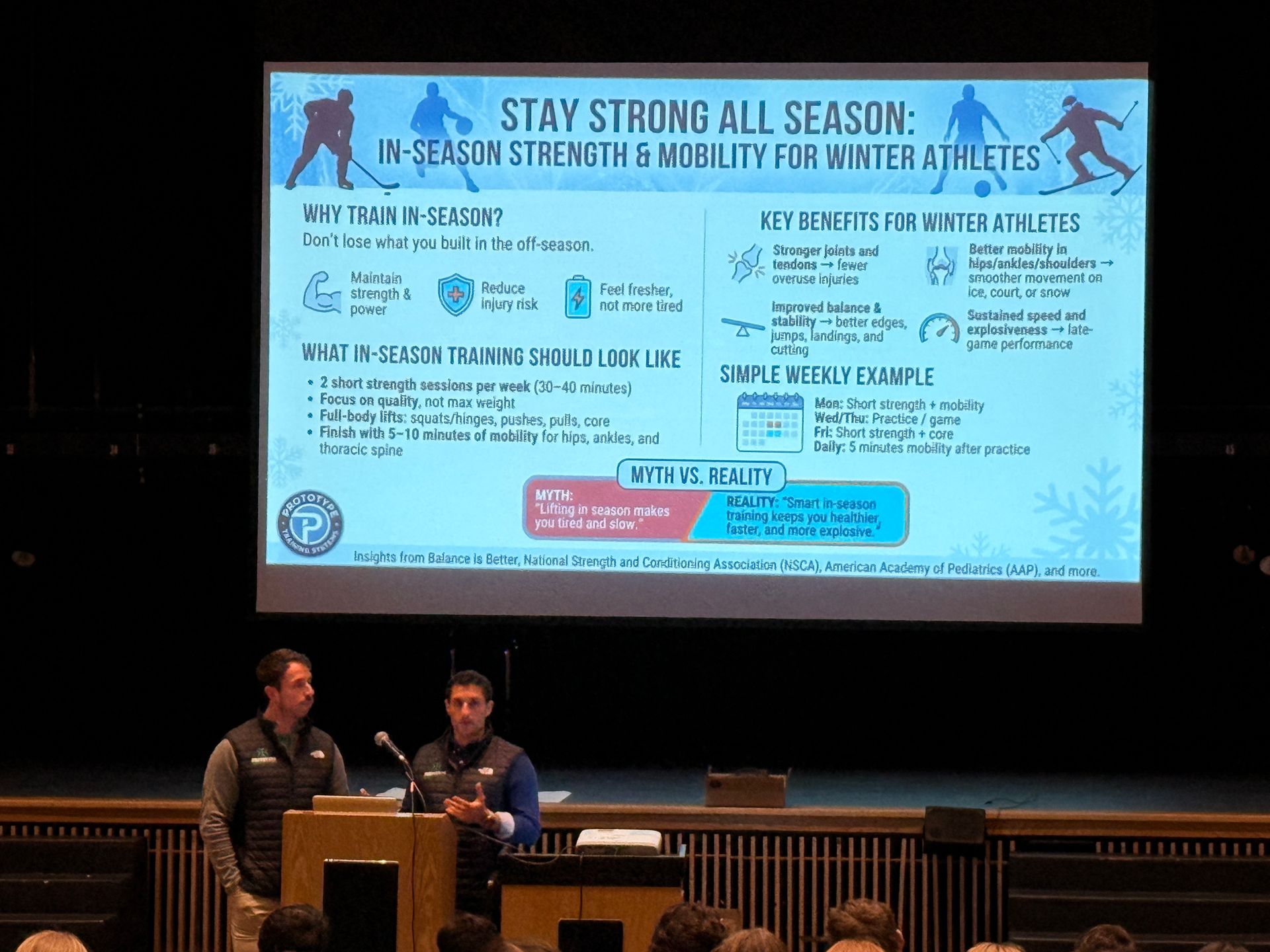No Rep! Why it’s so Hard

As we go into the final week of the Prototype Open we wanted to share some interesting observations your coaches had from 22.4.
To give you all some context… The Open (CrossFit Open or Prototype Open), outside of a competition event like Wet Hot Summer Throwdown, is the only time during the year in which you have someone judging your reps. When we say judging, we mean confirming or denying that you hit the specific criteria for the rep to count. What this doesn’t mean is that it’s the most efficient way (form vs. standard of movement) to do the movement. An example from 22.4 was the bar had to finish overhead with arms straight and in line with your ears. Another was both feet had to touch the bar on the toes to bar at the same time or the knee crossing the plane of your hip on the knee to chest option.
This event gets people nervous for various reasons, but one of the most common is the responsibility of judging… because it’s hard. Yes, it can be hard to count reps but it’s harder to hold your friends and people that are working really hard accountable for doing the movement to the standard. It gets into this conversation around truth… how it’s difficult to be honest with someone and tell them that they’re not doing it right. But it’s not doing that just once, it’s doing it over and over again.
About 7-8 years ago (and I’ll throw him under the bus), Coach Jon was doing an Open workout that had Wall Ball Shots in it and I was his judge. The standard is to squat below parallel and hit the target with the ball, for him it was a 10ft target. He kept missing the target and I kept giving him a “no rep”. It wasn’t that he couldn’t do it, he just kept failing to do it. I’m a pretty honest and truthful guy but giving the hard truth is hard for everyone, especially when it’s over and over and over again. Eventually, Jon got so upset that he took the medicine ball and threw it through the ceiling. About 5 panels dropped down to the ground. Not the reaction I expected. Clearly, if he could throw it through the ceiling, he could hit the target… but it was clear he was frustrated. More so with himself than with me. It’s frustrating when you’re trying hard but still not doing it… It was a lesson learned for him, that even when you’re working your hardest, it doesn’t mean you’re going to win. But when you’re not working your hardest, you most certainly will lose.
I share that story because it’s everyone’s worst fear when it comes to giving truth… how will the person react? Will they not like me? Will they be mad? More than likely though… they will adjust and do it correctly and deep down, appreciate the feedback because it helps make them better.
We had over 100 folks that came in to complete 22.4 last Friday and what your coaches observed while coaching the classes was that 41% of the judges gave a “thumbs up” or good rep, for reps that should have been given a “thumbs down” or no rep. The criteria were simple… 3 or more good reps when they should be no reps shows consistency in not giving the truth, so we tracked it. The standards and what to do were laid out ahead of time and encouraged to complete the rep correctly. The interesting thing is that everyone has the capacity to do it correctly (to their limitations), but we get tired, so sometimes we mess up or don’t do it. The judge is intended to hold you accountable.
I’ve thought about this a lot, because you may be reading this and thinking “well, I just come here to workout, I don’t really care about that”… the interesting thing isn’t the no rep/good rep, you’re still getting a good workout… the interesting thing is how hard it is to give truth even in the gym. I think about elite athletes like Tom Brady. Imagine if his coaches or peers gave him good reps when they weren’t? Would he be the Tom Brady we know today? When we do the hard stuff consistently, it makes us better. Doing the movement or doing your best to do the movement correctly AND consistently will transfer to better performance and fitness over time.
We don’t know what we don’t know (we all have blind spots), that’s what the judges are there for. In class, that’s why you have coaches, to hold you accountable to push you to do your best.
So I’m curious as we go into 22.5 this week if we can adopt more truth or at least be aware of it. My thesis is, yes, we can. I also believe it can be a driver towards a culture centered around Virtuosity (doing the common uncommonly well)… something we believe in strongly at Prototype. My next thought is… can that transfer outside the gym? Can you take the risk of giving truth in the gym and it be easier to have difficult conversations elsewhere? Maybe a practice or training ground? I also want to be clear, this isn’t about being assholes, that’s different… the intention is to help everyone get better. I would say Prototype is made up of a lot of really good people (the right WHO), which in theory can be the perfect place to do this.
I love the phrase “all ships rise with the tide”. A culture of elevating each other to be better and do better. It’s funny how it starts with truth…
Looking forward to seeing some NO REPS this week
The post No Rep! Why it’s so Hard appeared first on Prototype Training Systems.
Previous Blogs


Climb to New Heights
Prototype Training Systems is more than a gym - it is a lifestyle. Join us today!


